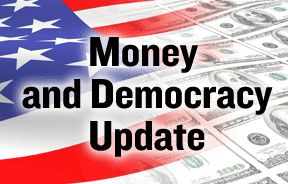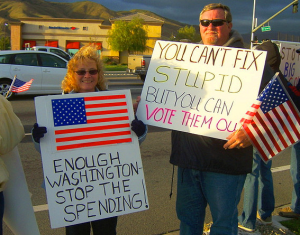With several pieces of high-stakes legislation before Congress during this brief session, Public Citizen activists are pulling out all the stops with emails and calls urging their public servants to pass critical good government and worker safety laws.
Activists turned up the pressure on moderate Republican senators to vote for the DISCLOSE Act, a bill designed to combat some effects of Citizens United v. FEC.
The activists left dozens of comments to report back after calling Sens. Scott Brown (R-Mass.), George Voinovich (R-Ohio), Lisa Murkowski (R-Alaska), Olympia Snowe (R-Maine) and Susan Collins (R-Maine).
The Supreme Court decision gave corporations the power to spend as much as they want to influence elections, and most of this money undisclosed. Instead, it’s being funneled through groups like the U.S. Chamber of Commerce and Karl Rove’s American Crossroads. (Our new report details this alarming lack of transparency.)
The DISCLOSE Act – which we believe is just one vote short of the 60 needed to break the Republican filibuster – would provide full disclosure of corporate, union and wealthy funding sources behind political advertising, extends the disclosure window to cover most of an election period, and tightens restrictions on political ads by government contractors and foreign entities.
The Fair Elections Now Act, another bill that would seriously mitigate the effects of Citizens United v. FEC, is coming up for a vote tomorrow by the House Administration Committee.
Ahead of this vote, activists called and emailed their Representatives in the House, urging them to fix the our system of financing congressional elections so that public servants answer to the people, not corporations and other wealthy special interests alone. (more…)
Read Full Post »
 Stunning Statistics of the Week:
Stunning Statistics of the Week:



















